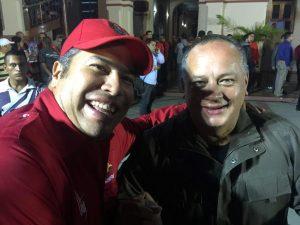The United States government is highly interested in the role played by certain operators closely linked to Alex Saab, a Colombian businessman detained in the U.S. and regarded as one of Nicolás Maduro’s main frontmen. These operators are Alessandro Bazzoni, an Italian citizen, and Joaquín Leal Jiménez, a Mexican citizen, who are also identified as trusted individuals in the circle of Tareck El Aissami.
Both Bazzoni and Joaquín Leal Jiménez were sanctioned by the U.S. Office of Foreign Assets Control (OFAC) in 2021. Federal investigations determined that after Saab was arrested in June 2020, Bazzoni took on the role of coordinating PDVSA’s oil resale operations and providing vessels to collect crude oil at Venezuelan ports. Meanwhile, Joaquín Leal Jiménez coordinated the purchase and sale of Venezuelan crude, facilitating its transport and resale to buyers, openly violating U.S. sanctions through the company Libre Abordo S.A. at inflated prices.

Alessandro Bazzoni, spouse of Siri Evjemo-Nysveen and PDVSA corruptor
Bazzoni and Joaquín Leal Jiménez partnered with various individuals and companies, particularly with Greek nationals George Moundreas and Panagis Zissimatos, along with Italian Erik Roveta, a broker acting as a technical manager and owner of several companies like Sernavimar SRL and Axione Chartering OU, to manage and operate vessels and transport crude oil and refined products to China and other markets.
Other individuals associated with this group include Phillipp Apikian from the Swiss Oil Trading SA based in Geneva, also sanctioned by the United States, and José Luis Chávez Calva, a Mexican financier who was responsible for collecting and facilitating payments for the corruption scheme. Chávez moved over eight billion dollars through his company Walker International DWC LLC, headquartered in Dubai.
Moreover, four additional companies—Schlager Business Group SdRL, Cosmo Resources PTE Ltd, Delta Group Ltd, and United Petroleum Corp.—were utilized to carry out the oil-for-food exchange operation orchestrated by Álex Saab and Álvaro Pulido. It is estimated that in this fraudulent business scheme, over 50 million barrels of crude and refined products were traded, valued at approximately five billion dollars, between 2019 and 2022.
Following Alex Saab’s arrest, Bazzoni, Leal, and their group of associates became protected agents of Tareck El Aissami. Alongside them was a significant organization controlled by military officials of the regime, led by Colonel Antonio Pérez Suárez, Vice President of Commerce and Supply at PDVSA.
However, El Aissami wasn’t the only one with protected operators in Venezuela’s international oil business. According to information published by AFP and Reuters, Diosdado Cabello and the Rodríguez brothers, Delcy and Jorge, also had significant involvement in the corruption scheme, although their operators lacked experience in the oil sector.
An example of this is Miguel Silva Pérez, an operator protected by Cabello, linked to the companies Misil Group Ltd and Grupo Iveex Insaat. Although Silva’s and Bazzoni’s businesses benefited both, one of the last major operations surprisingly failed. This event was one of the triggers for the investigations conducted by the government’s Anti-Corruption Police, sparking the current “mafia war” of corruption.
On the other hand, operators Majed Khalil Majzoub and Arturo Sarmiento, protected by the Rodríguez brothers, also participated in the corruption scheme through the companies Montmagastre Ventures Limited and Five Oceans Ltd.
The embezzlement caused by this corruption scheme is now estimated to be around 59 billion dollars, an unprecedented figure that reveals the total impunity with which they operated for years. While the ultimate fate of the resources obtained by operators linked to Tarek El Aissami, Diosdado Cabello, and the Rodríguez brothers is still uncertain, reports suggest that over 400 million dollars in cash and properties belonging to those involved in the business have been recovered, with individuals currently detained in Venezuela.
If we total the embezzlements perpetrated against PDVSA and CVG in the last 20 years, both by Rafael Ramírez’s mafia and the aforementioned groups, the figure exceeds 100 billion dollars, an obscene amount.

Miguel Silva Pérez, protected by Diosdado Cabello
Who is Miguel Silva Pérez? He currently serves as the president of the Venezuelan Exporters Chamber and the Venezuelan Group of Entrepreneurship Industries (IVEEX). Additionally, he is the General Coordinator of the Patriotic Integral Endogenous Border Social Foundation (SIENFRONT).
Between 2013 and 2016, Silva Pérez held various significant positions in the public sector. He was the director of International Affairs of the Venezuelan Peasant Federation, National Executive Commissioner for Monitoring and Control of the Ministry of People’s Power for Ecosocialism, Housing, and Habit, Coordinator of the Andean Center of the Bolivarian Council of Business Integration, and Coordinator of the state of Táchira and National Financial Director of the Bolivarian Chamber of Construction.
In relation to a ruling issued against Silva Pérez on July 4, 2019, a lawsuit was filed by Goitía Gómez, attorney for the company PDVSA Petróleo, S.A. The lawsuit aimed to collect overdue invoices for oil and its derivatives. The lawsuit was directed at both the company Grupo Iveex Insaat and Miguel Silva Pérez.
The group led by Silva Pérez made a purchase of hydrocarbons and derivatives from the state-owned Venezuelan company PDVSA. In this process, six invoices totaling 120 million 449 thousand 321.85 euros were issued, indicating the equivalent in bolivars for each of them. These invoices had due dates ranging from April 10 to May 1, 2019, but the corresponding payments were never made.
At the time, Silva Pérez argued that the invoices had been tacitly accepted by the defendant, based on a payment proposal sent by the defendant to the Vice Presidency of Commerce and Supply of Petróleos de Venezuela on May 17, 2019. He also pointed out that the Bills of Lading of the goods showed that the commercial company Grupo Iveex Insaat had received the merchandise under the FOB international trade clause, which implied that the buyer acknowledged the receipt of crude and its derivatives on vessels contracted or chartered by the defendant.